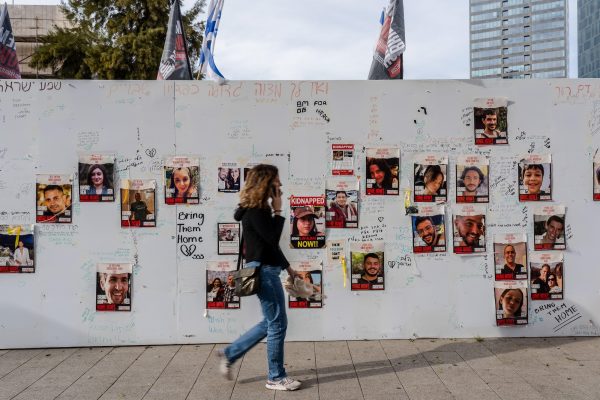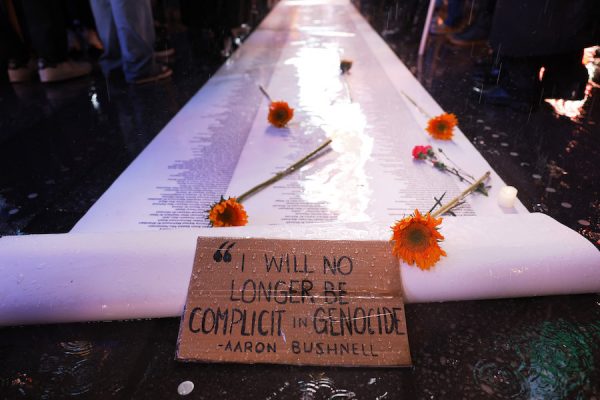I study the politics of religion and U.S. foreign policy. I oppose the Trump administration’s immigration policy and stand with those who are fighting its effects. While it is tempting to let outrage dominate our response to the refugee ban, however, we have been heading down this dark road for some time. The seven countries targeted in the ban were identified and restricted last year in changes to the visa waiver program under the Obama administration. While the new administration is taking hateful rhetoric to frightening new levels, those of us who stand outside (though never above) the immediate political fray would do well to examine the broader, bipartisan assumptions about religion and politics that made this turn of events possible, even foreseeable.
Calling the nations subjected to the ban Muslim is sociologically sloppy, historically misguided, and politically dangerous.
We must go beyond criticizing Trump to challenge the deep-seated and widely held assumption, held across the political spectrum, that Muslims are naturally, even preternaturally, violent. While seemingly easy to oppose, this notion draws sustenance from a much broader and deeper well of support than is often acknowledged by North American critics of far-right anti-Muslim politics. It enjoys the tacit support of a range of constituencies, including many liberal internationalists. It is not uncommon for critics of the Trump administration’s toxic religious politics, including from the progressive left, to repeat and reinforce the basic presumption that religion, particularly Islam, can be either good or bad, with the former lending itself to peaceful existence and the latter to oppression and violence. The reach of this assumption extends far beyond the current administration and its policies. In reality, religious affiliation does not predict political behavior, whether peaceful or violent. To assert that it does requires adhering to an untenable assumption about the capacity of religion to stand fully apart from history, law, and politics.
Misuse of religious labels pervades these debates. In an otherwise sharply critical piece about the new executive order, a New York Times headline utilized the label of “Muslim countries.” The presumption that one can objectively describe the nations subjected to the ban as Muslim is sociologically sloppy, historically misguided, and politically dangerous. It is precisely this slippage, and the actions and policies it engenders, that contribute to creating a world in which it seems natural to talk about religion as if we all know what we mean when we say “Muslim countries.” Even Bernie Sanders uses this language. It apparently no longer seems at all strange that the government—not just the present administration but any government, anywhere—would be vested with the legal and religious authority to determine who counts as Christian or Muslim. And yet the presumption that such authority should not be vested in the federal government was one of the central arguments in favor of disestablishment at the founding. How is it that today so few Americans appear ready to contest the claim that this authority belongs, or should ever belong, to the state?
Trump’s immigration ban shows the good Christian/bad Muslim rhetoric in its ugliest version, but it would be naïve to act as if this were either new or limited to the United States. A politics of religious authenticity structures many aspects of the modern international order: protections for religion in the 1948 UN Convention on the Prevention and Punishment of the Crime of Genocide give another stark example. The convention identified genocide as a special category of international crime, defined as systematic killing or other atrocities “committed with intent to destroy, in whole or in part, a national, ethnical, racial or religious group.” It puts a word to an act: mass extermination of identifiable communities. The convention does not include the mass killing of political opponents in its definition of genocide. The term speaks in the language of race, religion, and ethnicity—each of which is the product of political discourse. It treats individuals and groups as first and foremost carriers of an ethnic or religious identity. For individuals living in Aleppo under siege, this means that prospects for help from outside may depend on how outside powers label their religious affiliation. Those whom outsiders deem are being killed because they are seen as Christian would be protected and privileged, while those whom outsiders see as being killed because they oppose the Assad regime would not.
There is no such thing as Muslim or Christian political behavior.
The new executive order is certainly not the first instance of the legal institutionalization of religious discrimination. In political and legal orders that construe religious affiliation as politically determinative, religious affiliation easily becomes mapped onto political difference. Today’s focus on Muslim perpetrators as the problem—and the rescue of non-Muslim victims as the solution—draws on a toxic cocktail of nationalism, racism, and anti-Muslim politics that has been gathering strength for decades in North America, Europe, and beyond.
To assert that there can be Muslim countries and Muslim politics obscures the complex realities of human action and affiliation. Social, legal, and political worlds are not naturally structured around perceived distinctions between Muslims and others. Today’s discussions of the Islamic State, and of Muslims more broadly, are dominated by what anthropologist Darryl Li describes as “a secularized form of demonology” that stems “from a place of horror that shuts down serious thinking about politics.”
Trumpism epitomizes this shutdown but does not have a monopoly on it. Many liberals also speak of Islam and Muslim political actors as if they were singular agentive forces that can be analyzed, quantified, engaged, celebrated, condemned, or divided between good and bad. Yet there is no such thing as Muslim or Christian political behavior. To claim otherwise is to align oneself with Senator Ted Cruz’s preposterous assertion, made during the presidential campaign, that “there is no meaningful risk of Christians committing acts of terror.”
The notion that religious affiliation determines political behavior can be lethal for democracy when legalized. It leads to a “guilty until proven innocent” mentality toward anyone who is or appears to be Muslim, shutting down democratic politics and normalizing racial and religious discrimination. To posit extremism as an organic expression of Islam renders us incapable of apprehending the broader political and social contexts in which discrimination and violence occur and empowers those who benefit from the notion that Islam is at war with the West.
To posit extremism as an organic expression of Islam renders us incapable of apprehending the broader political and social contexts in which discrimination and violence occur.
To prevent and defend against violence targeting Americans will require understanding and addressing the larger context in which opposition to U.S. policy in the Middle East arises. This requires taking a wider view of the region to include not only the Islamic State’s atrocities but also the equally pernicious efforts by Assad and his supporters to generate deep social and political fault lines that correspond with ethnic and sectarian identities—and thus exploit them relentlessly. It requires recognizing that the vicious proxy war in Syria is fueled by outside interests, including arms industries and the deeply interdependent as well as competing military and security establishments in the United States, Turkey, Russia, Iran, Europe, Saudi Arabia, and the Gulf states. It requires accounting for the dramatic state failure in Iraq and Afghanistan resulting from U.S. invasions and occupations. It requires that the United States find constructive ways to address escalating tensions between an increasingly authoritarian Turkish government and its terrorized citizenry. It requires listening to political dissidents from all of these places.
To identify Middle Eastern Muslims as the cause of these problems, and to propose “saving” their Christian “victims” as the solution, replaces serious discussion about politics and U.S. foreign policy with moral panic. It pushes an adequate response further out of reach, while propelling to new heights a pernicious and perduring form of racially and religiously tinged American nationalism.








